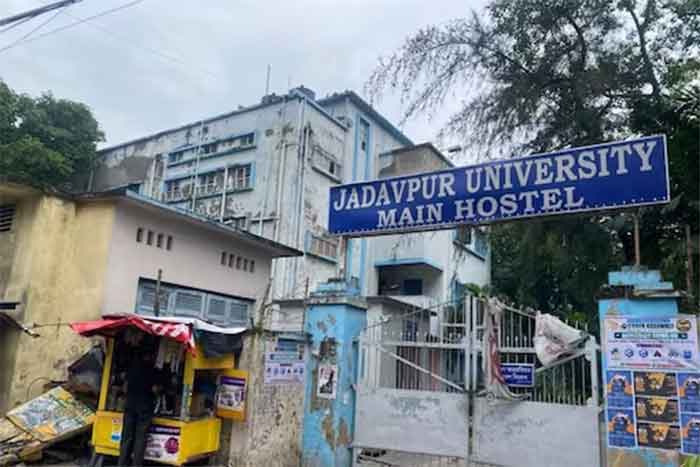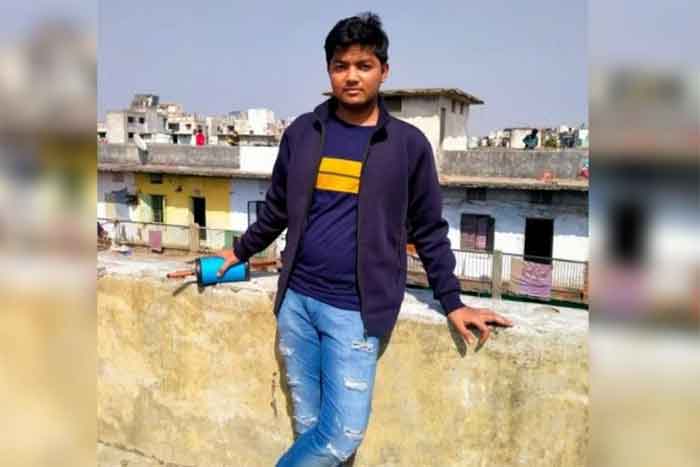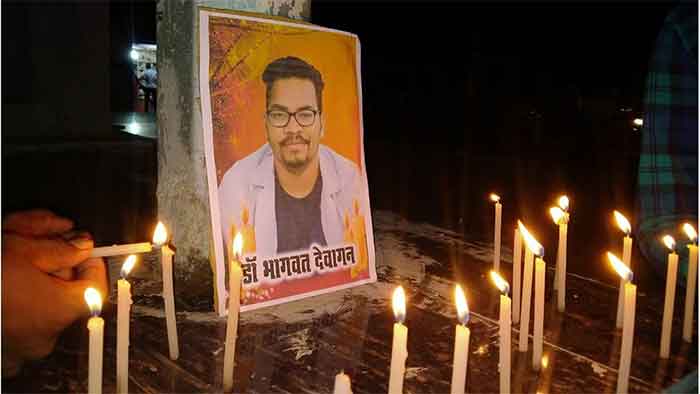The following piece is a personal reflection on the death of a first year student of the Bengali department of Jadavpur University, Swapnadeep Kundu, who commited suicide to escape a harrowing incident of ragging on just the second day of his campus life as a student. This is a feminist critique of the larger culture of toxic masculinity hugely prevalent in the University space that when left to accumulate unopposed, culminates in such a distressing incident as this.

I sit to write this down knowing fully well the stream of hostility that awaits me at the other end. But perhaps it is on days like these, only when lives have been lost, or bodies battered beyond restitution, that long pent up rage demands release- with the faint hope that next time reactions won’t wait till something so unequivocally diabolic and irrevocable has transpired.
I am reminded of the time I was hounded in an all faculty general body meeting by a group of male students from the engineering faculty with one of the students coming at me in a threatening fashion as if to strike. Jadavpur University GBs tend to get “heated up” and the premise for this action, if you’re wondering, was only a “disagreement”. Of course, Jadavpur still preserves enough of its old-school chivalry so that the boddas of that very same student were prompt to step in to placate the situation, putting up a show of reprimanding the junior student for his obvious display of gendered aggression. Of course, I was unable at that time to make sense or take stock of my emotions, owing to the complete absence of an environment congenial to the same. (There were very few women in that GB, and the few who were, belonged to one organization or the other and were least affected by my plight). It was only much later that I realized how severely traumatized that incident had left me, how terribly betrayed I had felt by the University space for whose many demands I had fought day and night. It was following this incident that I gradually reduced and then altogether stopped going to these GB meeting, except for a few meetings towards the very end of my University life on incidents of sexual harassment.
But of course, this isn’t about me. Except it really isn’t. It isn’t about me. It’s about all those women who don’t belong to this organization or that, because the stifling culture of misogyny, sexism, invisibilisation, homophobia, entitlement, and hyper masculine aggression, prevalent in organizations does not create a space where women and queer and trans persons can participate in or thrive- individually or as part of a collective. It’s about the fact that organizations at both ends of the spectrum- those who are a majority in the hostel and those who are not- have their very own private little “hostel spaces” and “messes” where, secluded and hidden from the public view of the University decision-making space, they can continually breed their toxic culture of normalized misogyny where they slut-shame this woman or fantasize about that. It is about a larger patriarchal culture so normalized that a senior male student leader does not shy away from commenting that a female student be made to ask for a contribution from a particular senior just to drive in more funds for a fest. It is about all these covert and overt practises with its root in the same masculine mindset that manifest in an organized ragging culture within the four walls of the men’s hostel and culminate in the kind of distressing incident that has shaken us all today where the most vulnerable of the lot who are unable to or choose not to conform to the normalized set of hypermasculine codes are compelled to meet the fate that Swapnadeep had to meet.
I refuse to believe that these are not interconnected. I refuse to believe that the invisibilization and the systemic everyday neglect of this very masculine culture, dismissed routinely as being too “minor” or not “feasible” enough to demand action does not or did not enable the culture of ragging and made Swapnadeep’s murderers believe that they could get away with what they did with total impunity. I refuse to believe that both the organization that is a majority in the hostel and those that are not, are not responsible for perpetuating this larger culture enabling ragging though their systematic silence, if not active participation, to similar incidents of ragging, bullying, and harassment only because they were of a visibly less injurious nature.
Around this time last year, a female research scholar of the University along with her male friend, was slutshamed, harassed, and physically assaulted by a drunken violent mob of former and current hostel boarders at night within the University premises. The incident was brought to the attention of the entire university student community in an Arts Faculty general body meeting held to discuss a separate cse of sexual harassment where representatives from the Engineering and Science faculties were also present. The incident elicited no agitative response from the student organizations or Unions despite the survivor’s efforts to mobilize support. While some organizations were too wary of ruffling up existing equations, others simply couldn’t be less bothered. Yet it isn’t so difficult to see that if a group could perpetuate such an act in the open University campus, what they were actually capable of doing within the enclosed space of the hostel with the kind of entitlement and privileged clout they possessed.
Some of us who were extremely rattled by the incident then were deliberating amongst ourselves on possible actions to take. In one of our meetings a friend had suggested that we put up “I do not feel safe in this campus” posters all over the University walls. To this another friend had responded that the campus however, was ours to reclaim, and that such a statement would foreclose any debate even before it had occurred. But perhaps it was necessary that day to articulate our discomfort with co-inhabiting the University space with those who spearheaded a toxic culture of harassment, bullying, and ragging that prevailed in its most unopposed form in the men’s hostel space. Perhaps if we did, if we had been more vocal in calling out those goons from the main hostel, it would have etched some kind of a mark in the toxic culture of the hostel space.
Just today morning, while having a conversation with a friend regarding the incident, he commented how Swapnadeep had to go before he could see some of the good things about the University. He saw only the bad things, perhaps the very worst of it. He had left his home in Nadia district to make a new home in the hostel and University, like many do everyday in public universities across India. Public universities, increasingly under attack today, are home to a huge section of students from varied socio-economic locations who are able to pursue higher education otherwise difficult to access in private colleges. However, these are spaces themselves steeped in hierarchized power dynamics not free from the ideological contestations that exist in society. Even for us who have long stopped calling this University “home”, we owe most of our understanding to the lessons inherited in this space through dynamic interactions with peers and teachers alike, and it is with the hope of preserving something of that culture of democracy and inclusivity that I feel the urge to pen down my thoughts.. The culture that I’m referring to has long started corroding and rotting from within, and nothing but the collective self-reflection and action of a student community can save it.
Anuska Paul is an independent feminist researcher and activist based in Kolkata.
















































